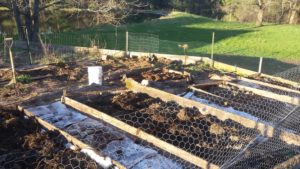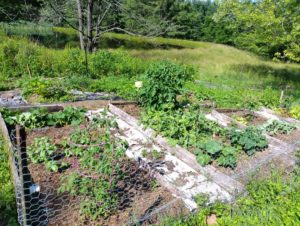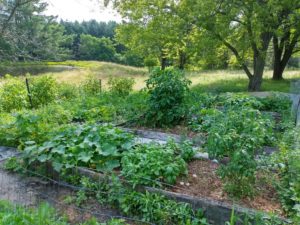Closed for 2023 season
Barakah Heritage Farm believes in preserving the heritage livestock breeds and heirloom plants whenever possible. These old time-tested genetics are uniquely suited to small farms and local markets. What we look for in a plant: hardy, low maintenance, easy to save seeds or cuttings and propagate.
2022 offerings will be delayed until fall, with mainly cool-weather crops and some pond plants. We will update the sales chart as the season unfolds.
| 2022 Produce For Sale – purchase HERE | ||
| Herbs: | Price per bunch: | Estimated Availability Date/Sold Out |
| Basil | unknown | |
| Cilantro | unknown | |
| Dill | unknown | |
| Chive | unknown | |
| Parsley | unknown | |
| Vegetables: | Price per item: | |
| Tomato | unknown | |
| Cucumber | unknown | |
| Lemon Cucumber | unknown | |
| Zucchini | unknown | |
| Yellow Squash | unknown | |
| Radish | unknown | |
| Swiss Chard | unknown | |
| Kale | unknown | |
| Pumpkin | unknown | |
| Pepper | unknown | |
| Lettuces | unknown | |
| Green Onions | unknown | |
| Cut Flowers: | Price per bouquet: | |
| Sunflowers | ||
| Mixed wildflowers | ||
| Pond Plants: | Price per plant: | |
| Water hyacinth | $1 | |
| Water lettuce | $1 |
The Gardens

We have restored and expanded the original raised-bed gardens at the farm. In 2020 we added additional fresh herbs, cut flowers, and more vegetables. In 2021 we added a new herb garden, with the help of intern Kristie.
Whenever possible, we plant heirloom open-pollinated varieties. Our planting lists have included cantaloupe, yellow squash, zucchini, sugar pumpkin, acorn squash, pickling cucumbers, lemon cucumbers, swiss chard, kale, spinach, mixed lettuce, green onions, onions, garlic, red potatoes (test bed), white potatoes (test bed), cabbage, turnip (test bed), carrots (test bed), 3 heirloom radish varieties, green peppers, and several heirloom tomato varieties. We have also nurtured some edible wild plants that volunteered in the garden, such as purslane, and haveplanted herbs cilantro/coriander, dill, basil, parsley and catnip, lavendar, basil, sage, parsley and rosemary.
We originally planned other bed types, but it became clear right away that Hugelkultur beds would not work with our unusual high rainfall and the number of springs. As there were already raised beds on site, we started with those. Raised beds are working really well for our climate and soil.
The land has also offered up some interesting wild foods. We have Autumn Berries from the Autumn Olive trees, wild grapes, a large stand of garlic, older fruit trees that are still producing, hidden among the hardwoods, a large variety of herbs such as mullein, purslane, yarrow, plantain, witch hazel, and sassafras, as well as fiddle heads, and catttails. (We explore and sample some of these on our Farm Tour.)
 |
 |
| Early summer and the gardens are just starting to produce. | Lush August garden. Only a few bare spots where new herbs and greens are seeded. |
Other Features Plus Future Plans
We and the horses designed a hybrid system of intensive rotational grazing and exercise runways, which are also used as walking trails and for mountain biking. The horses laid out their preferred trails in the first 2 years over a 35 acre plot, and now we are working within those trails to establish the rotational grazing plots for land restoration, as well as planting the hedgerows with perennial crops and food-bearing trees. We will be planning based upon one zone colder than our actual zone, for protection against wild weather swings. Stay tuned for drawing, diagrams and photos.
Trees and plants under consideration include: honeyberry/haskap, serviceberry, hazelnut, gooseberry, blackberry, blueberry, raspberry, grape, mulberry, peach, nectarine, moringa, root vegetables like turnips or mangelwurzel, and squash varieties. Some are already here and need to be encouraged or propogated from cuttings, and some must be added.
